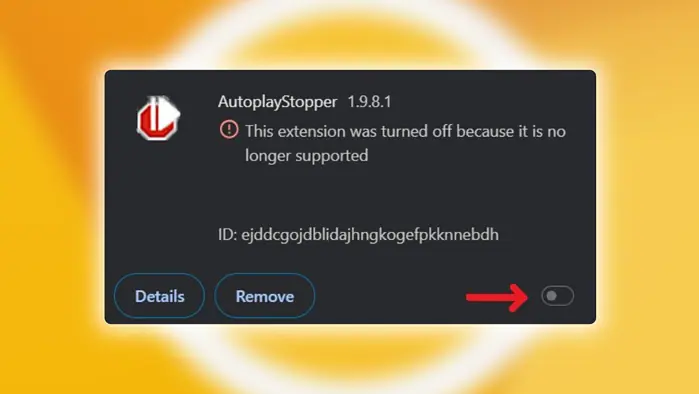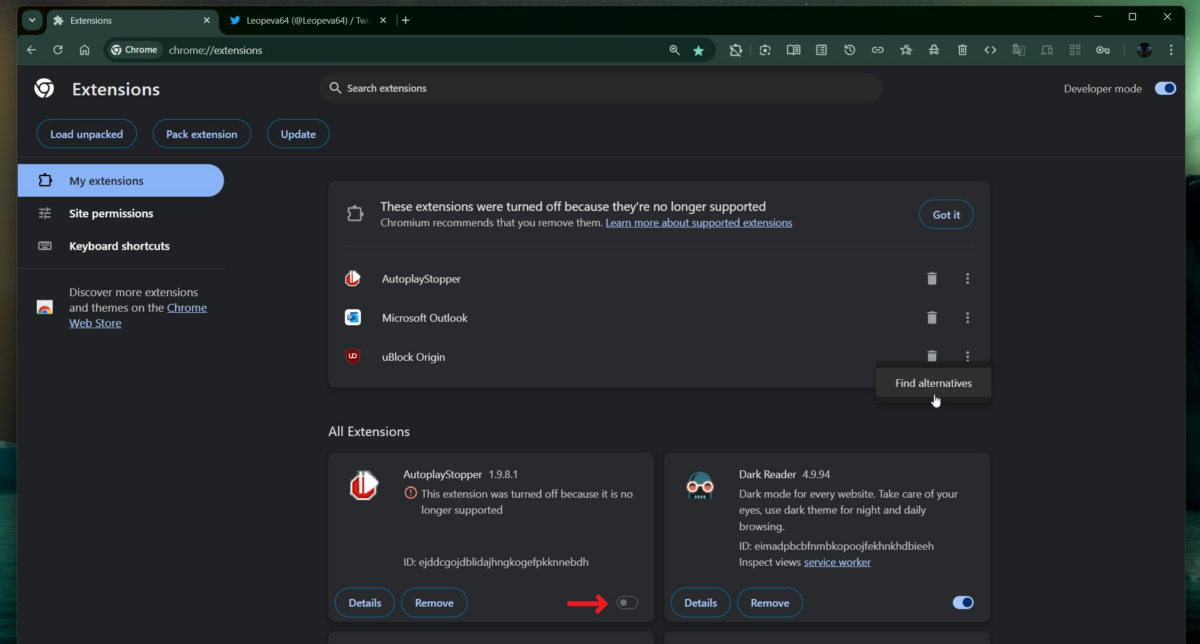Google Chrome is really serious about killing unsupported Manifest v2 extensions
With this update, the toggle to re-enable it is now off
Key notes
- Google is testing a change in Chrome Canary that prevents users from re-enabling unsupported extensions.
- With this update, these unsupported extensions can only be removed or replaced.
- This is likely part of a larger shift to Manifest V3, which restricts blocking techniques and has raised concerns among users.

Google is currently testing a change in Chrome Canary, the browser’s experimental channel, that makes it impossible to re-enable unsupported extensions.
A spot by a trusted browser enthusiast @Leopeva64 on X shows that the option to re-enable unsupported extensions has been greyed out. And now, you can only choose to remove these extensions or look for alternatives.
Here’s what it looks like, courtesy of the insider:

We’ve verified the claim independently, and it’s true. The toggle to re-enable it is off. As you can also see above, the warning for the unsupported extension reads, “This extension was turned off because it is no longer supported.”
Google has been at war with unsupported browser extensions for quite some time, especially with the shift from Manifest v2 to v3, which they wanted to be completed by June. This change has caused worry for users of extensions like uBlock Origin, with folks on Reddit complaining about that warning messages they’ve been seeing.
Why is it a big deal, though? Well, Manifest V3 restricts certain blocking techniques, and that kind of makes the whole purpose of uBlock Origin useless. Still, there’s a limited version called uBlock Lite that’s compatible with Manifest v3, although some said it’s less effective compared to the original.
Google mentions that Manifest v3 has key changes from v2 like using service workers instead of long-lasting background pages, removing the ability to run unreviewed code from the web, and replacing the old webRequest API with a safer option for managing network requests.
It also introduces new APIs for developers, with the planned end of support for v2 set for June 2025 for enterprises and back in June 2024 for consumers.
Read our disclosure page to find out how can you help MSPoweruser sustain the editorial team Read more




User forum
0 messages